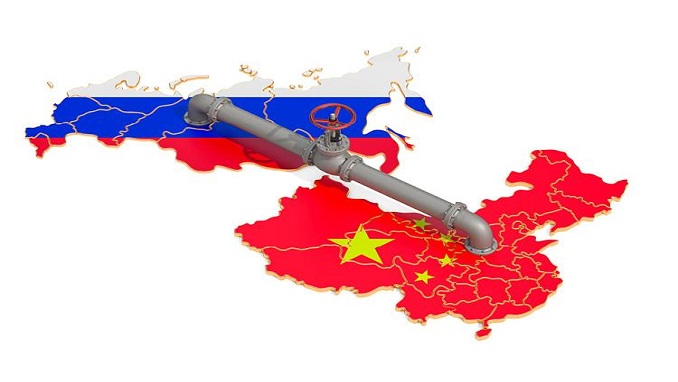Russia can potentially reduce its reliance on European buyers with a massive new gas pipeline to China, but this project, as analysts say, reveals an imbalance between the longtime strategic allies that continues to grow.
Although Beijing, which emerged as an economic lifeline for Moscow last year, has so far avoided an explicit commitment with regard to the project, Moscow is confident that the new pipeline Power of Siberia 2 is going ahead.
Russia is already linked with China by the first Power of Siberia pipeline.
Even Russian President Vladimir Putin said that all agreements have been reached on the Power of Siberia 2 during Chinese President Xi Jinping’s summit in Moscow this week.
But, as Marina Shagina, a researcher at the International Institute for Strategic Studies (IISS) in Berlin, points out, Beijing is in no rush to sign a proposal that is not favorable and shaped on China’s terms.
Other analysts pointed to China’s wariness of over-reliance on Russia for fuel, noting that the lagging response shows an imbalance favoring Beijing in energy deals between the two countries, which have so far – especially through energy purchases – helped Russia after Western sanctions over Russia’s invasion of Ukraine cut off crucial trade links.
The capacity of Power of Siberia 2 is roughly on par with the Nord Stream 2 pipeline’s total capacity – which it could strategically replace- and could enable the transport of 50 billion cubic meters of gas to China annually.
The deliveries of Russian gas to China in 2022 through the existing Power of Siberia pipeline reached a record 15.5 billion cubic meters, making Beijing the top buyer of Russian energy, but the sales in Asia, in general, can’t compare with the 155 billion cubic meters of gas Russia exported to Europe prior it invaded Ukraine.
According to the Helsinki-based Centre for Research on Energy and Clean Air, China has paid a total of $12.2 billion for coal, gas, and oil from Russia so far this year. As Shagina points out, Beijing capitalized on Moscow’s international isolation and ramped up its purchases of heavily discounted Russian energy sources, emerging as the winner from the war in Ukraine with a strengthened position in energy negotiations with Russia.



